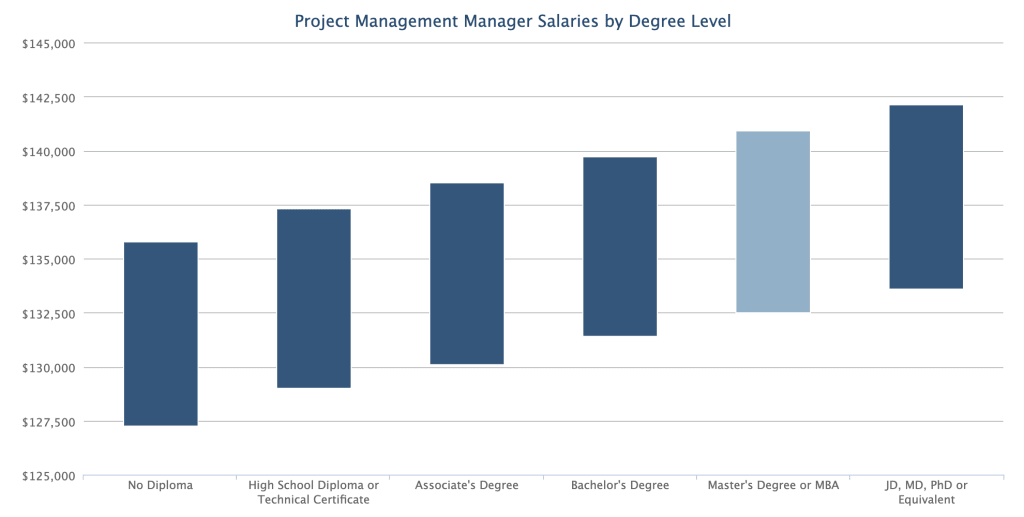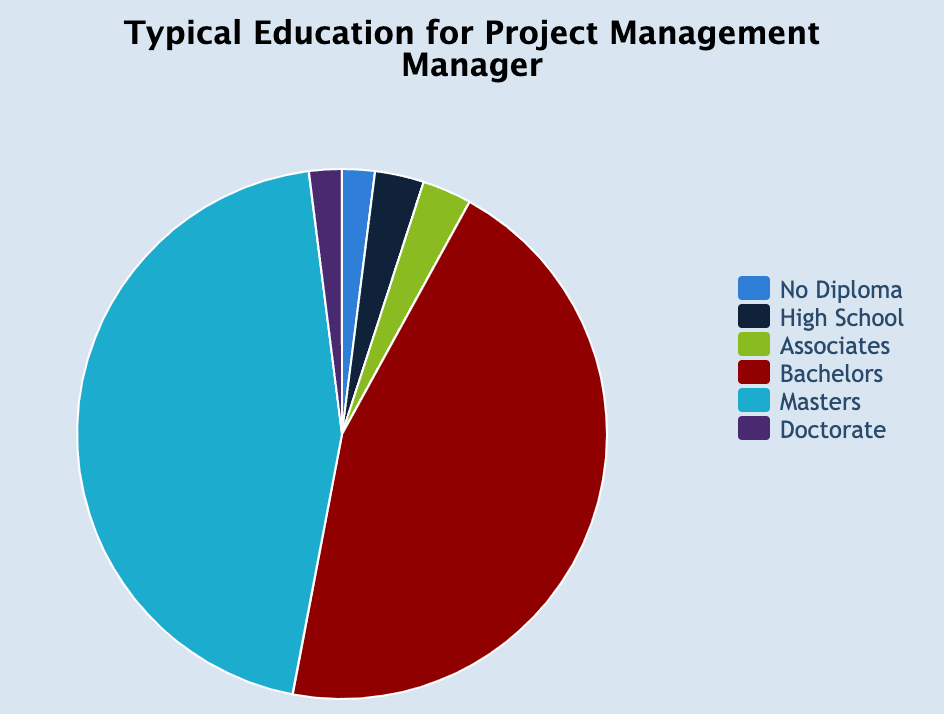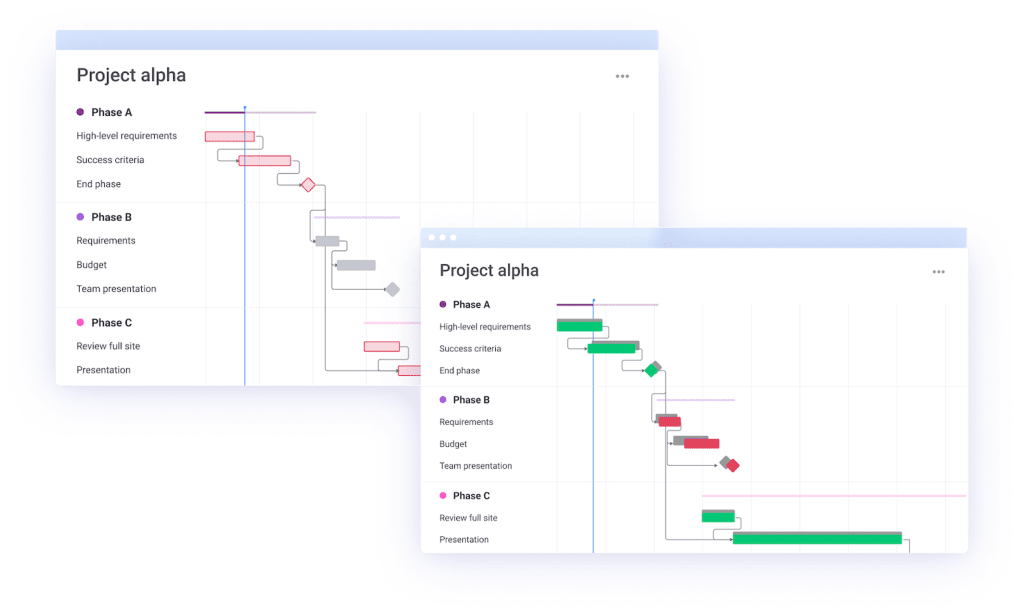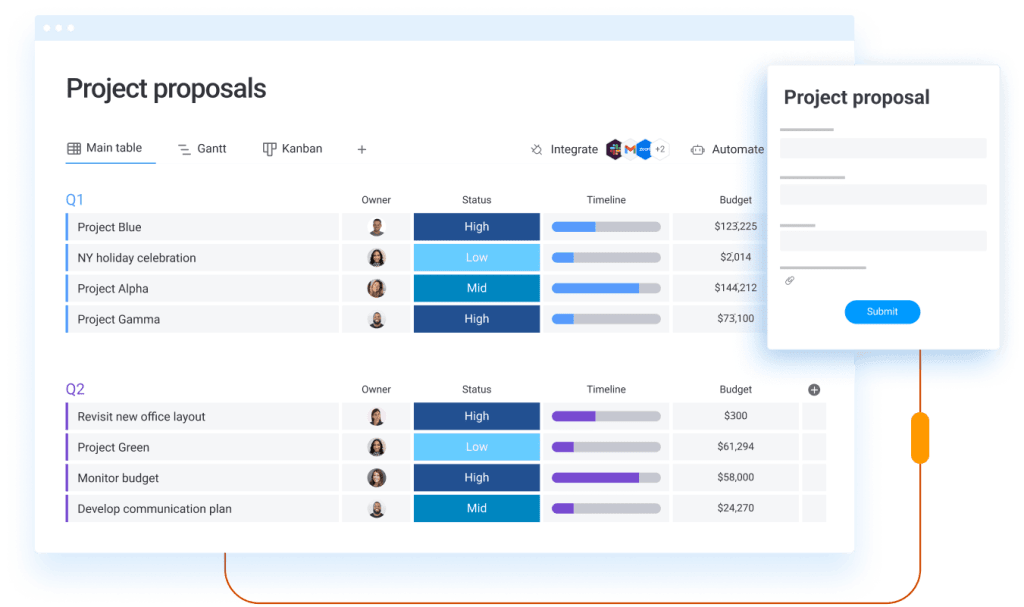Project managers are in high demand.
Research by the Project Management Institute (PMI) indicates that employers will need to fill nearly 2.3 million new project-oriented roles each year through 2030. It reckons there’s an increased demand for project managers as:
- Most jobs involve project work.
- More people are retiring earlier.
- Emerging and developing countries are experiencing economic growth.
This guide explores the benefits of obtaining a master’s in project management to progress your career, the best places to study, the costs, plus the jobs and salaries you can expect after qualifying.
What is a master’s in project management?
A Master’s in Project Management is a degree program for graduates to extend their knowledge and learning.
The core curriculum prepares you for a wide range of local and international opportunities across numerous organizations and industries such as healthcare, construction, technology, and engineering. You also have the option to specialize in high-demand areas like agile project management and prepare for professional qualifications like PMP.
A master’s degree in project management equips you with the leadership skills and knowledge to plan, lead, and manage projects efficiently and cost-effectively.
Why study a master’s in project management?
Although you don’t need a master’s in project management to become a project manager, there are several advantages. For instance, you can:
- Advance your career with a more prestigious degree – you’ll be more qualified than your peers.
- Increase your chances of employability – a master’s degree stands out on your resume or CV and opens the door to more employment opportunities.
- Improve your project management skills – you’ll have a deeper understanding of project management, enabling you to manage more complex projects and diverse teams.
- Add to your skill set – you’ll gain a wide range of skills, including teamwork, holistic thinking, problem-solving, leadership, ethical awareness, and value-based thinking.
- Boost your salary and potential lifetime earnings – you’ll likely earn around 15% more than those with a bachelor’s degree as you manage more significant projects with larger teams.
How much does a master’s in project management cost?
Tuition and fees vary from college to college, but here are three examples of what you can expect to pay for a master’s in project management.
NYU School of Professional Studies Master’s Degree:
- Full-time students (10 – 12 credits) $24,503 per semester
- Part-time students (6 credits) $14,858 per semester
Boston University’s MS in Project Management:
- Part-time students $36,760–$38,500
- Full-time students $30,525 per semester
ASU online Master’s in Project Management:
- $18,444 per year (resident)
- $26,374 per year (non-resident)
[Note: this course takes approximately one year to complete a total of 33 credit hours.]
How long does a master’s degree in project management take to complete?
It usually takes 12–24 months to complete an online master’s in project management, depending on several factors, such as:
- The program you’re following
- Course credit requirements
- The pace of the coursework
- Whether you’re studying full-time or part-time
- If you’re in an accelerated program
What are the admission requirements?
Each school has different admission requirements for an online master’s degree in project management. Typically, you’ll need:
- A bachelor’s degree from a regionally accredited college/university
- Official transcripts from your previous school(s)
- Grade point average (GPA) from undergraduate (sometimes high school as well)
- Graduate Record Examinations (GRE) test scores
- References
For example, applicants for the Arizona State University (ASU) Online Master of Project Management must have a minimum of a 3.0 cumulative GPA in the last 60 hours of their bachelor’s program or an applicable master’s program. Plus, all applicants must submit the following:
- Graduate admission application and application fee
- Official transcripts
- Personal statement
- Up-to-date curriculum vitae or resume
- Two letters of recommendation
What classes and core subjects are covered?
Classes and core subjects vary between colleges.
For example, MS project management students at Boston University must accumulate 40 credits from the Core courses (four courses/16 credits), Specialization courses (four courses/16 credits), and Elective courses (two courses/16 credits).
Coursework typically covers mega-projects, project and program portfolios, agile principles, project and program governance, project planning and control, project management life cycle, methodologies of effective leadership and motivation, cost and risk management, management of project quality and procurement, earned value analysis, and communication.
Best master’s in project management programs
US News & World Report, a recognized leader in college and grad school rankings, says these institutions have the best online master’s degree programs in business (excluding MBAs):
- Indiana University–Bloomington (Kelley)
- Carnegie Mellon University (Tepper)
- University of Southern California (Marshall)
- University of Georgia (Terry)
- University of Tennessee-Knoxville
- Michigan State University (Broad)
- Texas A&M University-College Station (Mays)
- University of Connecticut
- Arizona State University (Carey)
- Boston University
- Duke University (Fuqua)
- The University of Texas at Dallas (Naveen Jindal)
- University of Massachusetts-Amherst (Isenberg)
- University of Alabama (Manderson)
- University of Nebraska-Lincoln
What salary can I earn with a master’s in project management?
Project managers earn a decent salary, and those with a master’s degree can expect to earn more as they take more senior roles.
Here’s a rundown from various sources:
Zippia reports that most project managers (68%) have a bachelor’s degree, while 14% hold a master’s degree. Average salaries increase with degree level:
- Bachelor’s degree: $102,588
- Master’s degree: $114,821
According to the US Bureau of Labor Statistics (BLS):
The BLS data also shows that industry and location play a part in a project manager’s salary.
Glassdoor figures show the median salary for a project manager in New York City, NY is $94,437, while senior project managers can expect to earn $139,583. It lists the top 10 paying companies as:
- Meta: $232,153
- McKinsey & Company: $228,626
- Cisco Systems: $215,408
- Dell Technologies: $214,560
- BGC Partners: $213,262
- Google: $211,121
- Macquarie Group: $210,824
- ExxonMobil: $208,048
- Malk Partners: $207,539
- McAfee: $207,376
Payscale says the average salary for graduates with a master’s degree in project management is $87K/year. It also highlights a gender pay gap:
- Female (52.1%) – average salary $52K – $128K
- Male (47.3%) – average salary $65K – $141K
Salary.com states the median salary for a Project Management Manager with a master’s degree or an MBA is $132,491 – $140,908.

Their data also shows an even split (45%) between those holding a bachelor’s and a master’s degree.

What jobs can you get with a master’s in project management?
Graduates with a master’s in project management work in various public, private, and nonprofit organizations. Popular employers include Amazon, UTC Aerospace Systems, Centene Corporation, Northrop Grumman Corporation, Accenture, Infosys, Citi, and IBM. Typical jobs include:
- Project manager
- Senior project manager
- Program manager
- Project coordinator
- Assistant project manager
- Operations manager
- Project engineer
- Project management analyst
- Quality manager
- Master scheduler
- Computer and information systems manager
- Industrial production manager
- Sales manager
- Business planning analyst
- Administrative services manager
Boston University’s Career Insights tool shows:
- There have been 260,170 project management job postings in the last year
- There are over 43 different career options
- Students could earn an average salary of $91K
- Over half (54%) of graduates are employed as project and program managers

Master your project management skills on monday.com
Project management training is just one aspect of excelling as a project manager. Getting hands-on experience with the latest project management tools like monday.com is also crucial.
In terms of project management, monday.com features include:
- Templates: Use templates to create repeatable project structures, automate your manual tasks, and adapt to any project methodology from one place.

- Collaboration: Communicate with all stakeholders over one shared platform to move projects forward.

- Centralize: Choose from over 27 different view types, including Gantt, Kanban, Timeline, Calendar, and Map, to centralize and plan projects from start to finish.

- Reporting: Check customizable reporting dashboards to stay on track and reach your goals.

- Automations: Save valuable time by automating your project approvals and tasks to streamline workflows.

- Integrations: Connect your essential tools, like Google, Jira, and Salesforce, to align teams across the organization.
FAQs
Here are three frequently asked questions about a master’s in project management.
Is project management a good career?
Yes, project management is a rewarding — but demanding — career choice that offers high salaries and plenty of job variety.
Do you need a master’s degree to be a project manager?
No, you don’t need a master’s degree to be a project manager. But if you want to earn a higher salary and progress your career, a master’s degree can help you achieve your goals. Having a master’s degree in project management listed on your resume or CV sends a clear signal to recruiters that you are serious about the profession.
Which is better: PMP, MBA or a master’s in project management?
A PMP, MBA, or master’s in project management are all worthy, sought-after qualifications. The PMI Salary Survey shows that PMP-qualified candidates get higher salaries than non-qualified candidates. And the same applies to those with a master’s degree.
- A PMP requires real-world project management experience, so it’s ideal for candidates with 3-5 years of experience leading projects.
- A master’s in project management is the best choice for those who want to focus on the nuances of project management.
- An MBA is perfect if you want to attain a more comprehensive understanding of business, although you may be able to select a project management module.
Advance your career with a master’s in project management
With demand for project managers set to continue growing until 2030, there’s never been a better time to study for a master’s in project management. You can expect to earn a higher salary and work on large-scale projects in a senior project management role.
Try monday.com to see how easy it is to plan, manage, and collaborate on your projects.

